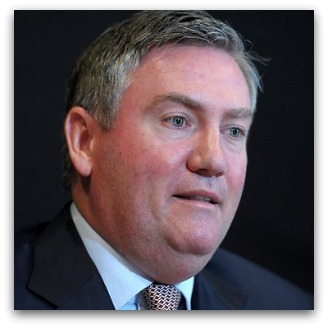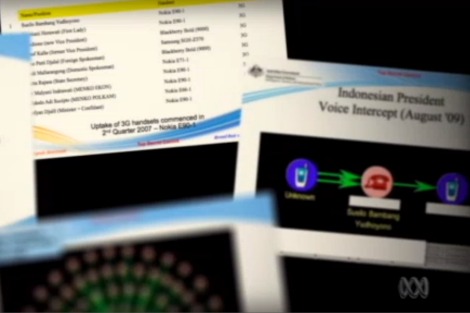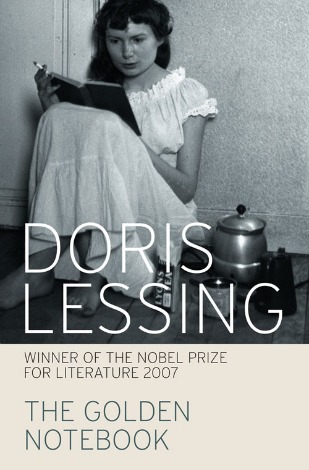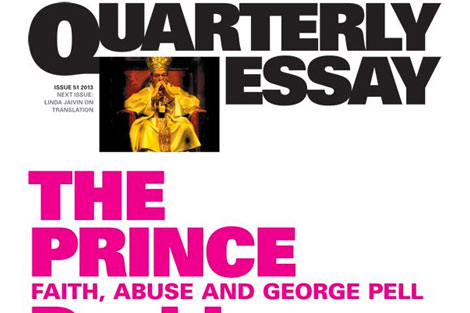Section: Media
There are more than 200 results, only the first 200 are displayed here.
-

MEDIA
Malcolm Turnbull is unusual among Australian politicians in having a keen regard for the role of journalism in a democracy. That makes his blithe disregard of the prospect of handing Rupert Murdoch even greater influence over Australian politics all the more puzzling. It is unsurprising that some observers see the foreshadowed change to media ownership laws as a pay-off for News Corp's support of the Coalition in the 2013 election.
READ MORE 
-

MEDIA
- Tim Kroenert
- 24 March 2014
5 Comments
There is little doubt that it is too soon and the story too tragic to be the butt of jokes. But the fact that such responses exist speaks to the ways in which this story has permeated the public imagination in unhealthy ways. The engagement is frequently marked by genuine concern, but also contains a deeply voyeuristic fascination that is divorced from the humanity of these events. People love a mystery, and an unhappy ending even more.
READ MORE 
-

MEDIA
- Ellena Savage
- 21 March 2014
13 Comments
Andrew Bolt's response to Q&A's airing of accusations of racism was surprising. While no human is immune to emotional distress, it seems excessive for a man whose career has taken him to the edge of defamation laws to publicly wither under his opponents' attacks. This matter brings to light the discord between Australian conservatives' rhetoric about liberty and free speech, and the reality their policies and opinions impose.
READ MORE 
-

MEDIA
- Michael Mullins
- 10 February 2014
7 Comments
The ANZ Bank faces a huge payout after a class action by its customers secured a partial but significant victory against the bank's unfair and illegal credit card late payment fees. This is happening because we have laws to protect consumers. The Federal Government is well advanced in its efforts to wind back existing and planned laws that protect consumers, as they are considered red tape that places an unnecessary burden on business.
READ MORE 
-

MEDIA
- Michael Mullins
- 02 February 2014
18 Comments
Tony Abbott's suggestion that the ABC should be patriotic in its news reporting is not compatible with its Charter obligation to truth and impartiality. But it is a reminder that the ABC has muddied its own waters by taking on the running of the Government's Australia Network international television service, which gives patriotism priority over truth.
READ MORE 
-

MEDIA
- Ellena Savage
- 24 January 2014
4 Comments
Last week a troubling story broke on sports journalism site Grantland. While investigating the background of Dr V., an avowed physicist who had invented a revolutionary golf putter, journalist Caleb Hannan discovered that Dr V. was a trans-woman. In the course of the investigation, Dr V. committed suicide. This tragic case raises questions about journalistic ethics, not least of which is if journalism is, by its very nature, unethical.
READ MORE 
-

MEDIA
- Ruby Hamad
- 09 January 2014
1 Comment
Those who object to Indigenous people being called 'apes' and to white men painting themselves black are dismissed as being politically correct and denying free speech. But how can Adam Goodes choose not to be offended by comments conceived for the very purpose of justifying crimes against the racial group to which he belongs?
READ MORE 
-

MEDIA
- Ellena Savage
- 20 December 2013
8 Comments
Social media requires us to produce 'profiles' of ourselves that represent our cultural aspirations; not only who we are, but who we imagine we would like to be. This is often liberating and creative. But the digital sphere is not as innocent as mere self-expression. The more we believe that we are inherently self-made, essential beings, our capacity to recognise the cultural and economic forces greater than us suffers.
READ MORE
-

MEDIA
- Walter Hamilton
- 29 November 2013
14 Comments
The ABC does not have a special responsibility to be 'diplomatic' in deciding what to report and what not to report. It does not have an obligation to adjust its news judgments to implicitly support government policies, or to weigh up what the majority of the public might think to do in such a situation. It must only exercise its professional judgment as to 'news value', and be accountable for it.
READ MORE 
-

MEDIA
- Ellena Savage
- 22 November 2013
7 Comments
Last week a letter circulated among freelance writers that called out Crikey's online arts daily, The Daily Review, for its decision not to pay freelance conributors, despite being a commercial, advertising-driven enterprise. The death this week of British writer and Nobel laureate Doris Lessing speaks further to this issue of whether writers should be paid for their work. The way she lived her life could not be disentangled from how and what she wrote.
READ MORE 
-

MEDIA
- Andrew Hamilton
- 26 September 2013
64 Comments
The limitations of Marr's account are the obverse of its virtues. It sifts Pell's motives and words but not those of his critics, and simplifies complexities. The details are designed to imply character. Churches are empty or full depending on the needs of the plot; Pell does not speak but booms. If a cock crows in a distant farmyard it crows for the Cardinal alone. This makes for engaging reading, but demands careful judgment.
READ MORE 
-

MEDIA
- Ruby Hamad
- 16 September 2013
15 Comments
Putting aside the outrageousness of 'jokingly' offering sanctuary to asylum seekers in exchange for an Australian senator posing for a lad's magazine, Zoo's actions simply tell us that mouthy women with an opinion can be dealt with by reducing them to sexual objects. And that objectification directly affects how women are perceived.
READ MORE 